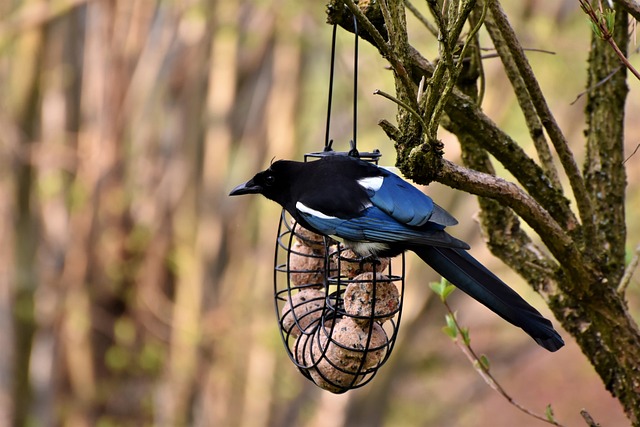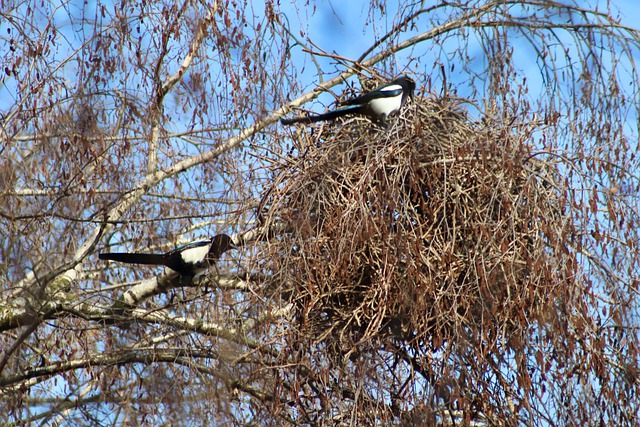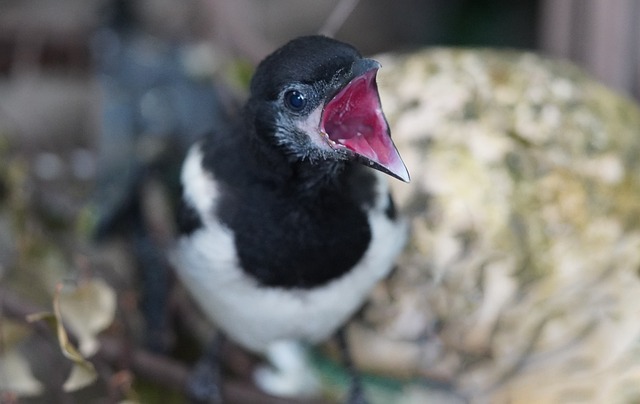Magpies may attack each other for various reasons, including territorial disputes, resource competition, and establishing dominance within a group.
Magpies are brilliant birds that are often spotted in urban and rural areas. Their natural curiosity and territorial nature can sometimes lead to conflicts with other magpies.
So, why do magpies attack each other? While they are typically peaceful birds, territorial disputes can escalate into aggressive encounters.
The reasons why magpies attack each other are complex and multifaceted. It involves factors including resource competition, territorial defense, and even social hierarchy.
Let’s disclose the reasons behind the surprising behavior of the peaceful bird.
Why Do Magpies Attack Each Other? Reasons Behind their Surprising Behavior

Understanding “why magpies attack each other” can be fascinating, and it encourages us to observe and appreciate these birds in their natural environment.
Here are the causes that may lead the magpies to attack each other.
Territorial Defense
Magpies are highly territorial birds, especially during their breeding season. They fiercely defend their nesting territories to ensure a safe and ample space for raising their young.
Aggressive interactions help establish and maintain these territorial boundaries.
Resource Competition
Magpies are omnivores, and their diet includes a variety of foods like insects, small vertebrates, fruits, and even human scraps.
Limited food resources can lead to competition between magpies, and aggressive behavior helps them secure access to essential food sources.
Hierarchy Establishment
Within magpie social groups, a hierarchy is established that determines access to resources such as food, nesting sites, and mates.
Aggressive interactions help establish and maintain this hierarchy, with dominant magpies having priority over these resources.
Breeding Competition
During the breeding season, there is increased competition for mates and suitable nesting sites. Aggressive behaviors help magpies assert their dominance and attract potential partners.
Protection of Offspring
Magpie parents are highly protective of their offspring. Aggressive behaviors towards other magpies can help deter potential threats and predators from approaching their nests and young.
Social Structure
Magpies are social birds and live in family groups. The dynamics within the group can influence the levels of aggression displayed. Dominant magpies may exhibit more aggression to maintain their status within the group.
Reducing Competition
By keeping weaker or subordinate magpies away from critical resources, dominant magpies can reduce competition within their group and increase their chances of survival and reproduction.
Hormonal Influence
Hormonal changes can influence the behavior of magpies, especially during the breeding season when their hormone levels fluctuate.
Previous Experience
Past interactions with humans or other animals can influence magpies’ aggression. If they have had negative encounters with people, they may become more defensive and aggressive as a protective mechanism.
Human Interaction
Human behavior towards magpies can also influence their aggression levels.
If humans have intentionally or unintentionally fed magpies, they may become bolder and more assertive in seeking food, potentially leading to perceived aggression.
Urbanization
In urban environments, magpies may encounter humans and other animals more frequently, which can alter their behavior and potentially increase their aggression levels due to the presence of unfamiliar stimulation.
Impact of Environmental Factors on Magpies Aggression

Environmental factors keep a significant impact on the aggression levels of magpies. The environment in which magpies live and interact can shape their behavior and influence their level of aggression.
Here are some specific environmental factors that can affect magpies’ aggression:
Habitat and Territory
The availability and quality of suitable nesting and foraging habitats play a crucial role in magpies’ territorial behavior.
Changes in the habitat due to urbanization, deforestation, or other disturbances can disrupt their nesting and foraging areas, potentially leading to more aggressive behavior as they try to defend their dwindling resources.
Food Availability
When food is scarce, they may become more competitive and aggressive towards other birds or animals, as well as humans, in an attempt to secure essential resources.
Nesting Site Disruptions
Human activities, such as construction, tree trimming, or removal, can disrupt magpies’ nesting sites. This can trigger defensive aggression as they try to protect their nests and young from perceived threats.
Noise and Disturbance
Loud and persistent noise, such as construction work or heavy traffic, can stress magpies and increase aggression. Frequent environmental disturbances can disrupt their natural behavior and affect their overall temperament.
Presence of Predators
The presence of natural predators or introduced species that threaten magpies can heighten their aggression levels as they attempt to protect themselves and their young.
FAQs
Why do magpies attack each other?
Magpies attack each other to establish dominance within their social groups, defend their territories, and compete for limited resources such as food and nesting sites.
Do all magpie species engage in these attacks?
Yes, most magpie species exhibit aggressive behavior and engage in various attacks driven by factors like breeding season and resource availability.
Are magpie attacks a common phenomenon?
Yes, magpie attacks on other magpies are common, particularly during breeding seasons when competition is heightened.
What triggers increased aggression among magpies?
Magpie attacks intensify during breeding seasons due to heightened competition for mates and nesting sites. The scarcity of resources can also lead to increased aggression.
How do magpies establish dominance through attacks?
Magpies establish dominance by engaging in physical confrontations, with the more dominant bird gaining priority access to food sources and preferred nesting areas.
Can magpie attacks result in serious injuries?
Magpie attacks usually cause minor injuries, such as peck marks, but in rare cases, they can escalate to more severe harm, mainly if targeted at weaker individuals.
Do magpies only attack each other?
Magpies may also attack other bird species, especially if they perceive them as competitors for resources or threats to their territory.
How can humans avoid magpie attacks?
To avoid magpie attacks, people can avoid nesting areas during breeding seasons, wear protective clothing like hats or sunglasses, and remain calm and non-threatening.
Are magpie attacks a sign of population imbalance?
Magpie attacks are a natural part of their social dynamics and do not necessarily indicate a population imbalance or a larger issue.
What’s the best course of action when faced with aggressive magpies?
When encountering aggressive magpies, avoiding the area, using protective measures, and minimizing sudden movements to reduce the chances of provoking an attack is best.
Conclusion
Overall, it’s important to note that magpies, like other wild animals, are best observed and appreciated from a distance. So, why do Magpies Attack each other?
Shortly, the magpies have several reasons to attack each other. But, their natural behavior leads the birds to defend their resources, territory, and reproductive success.

